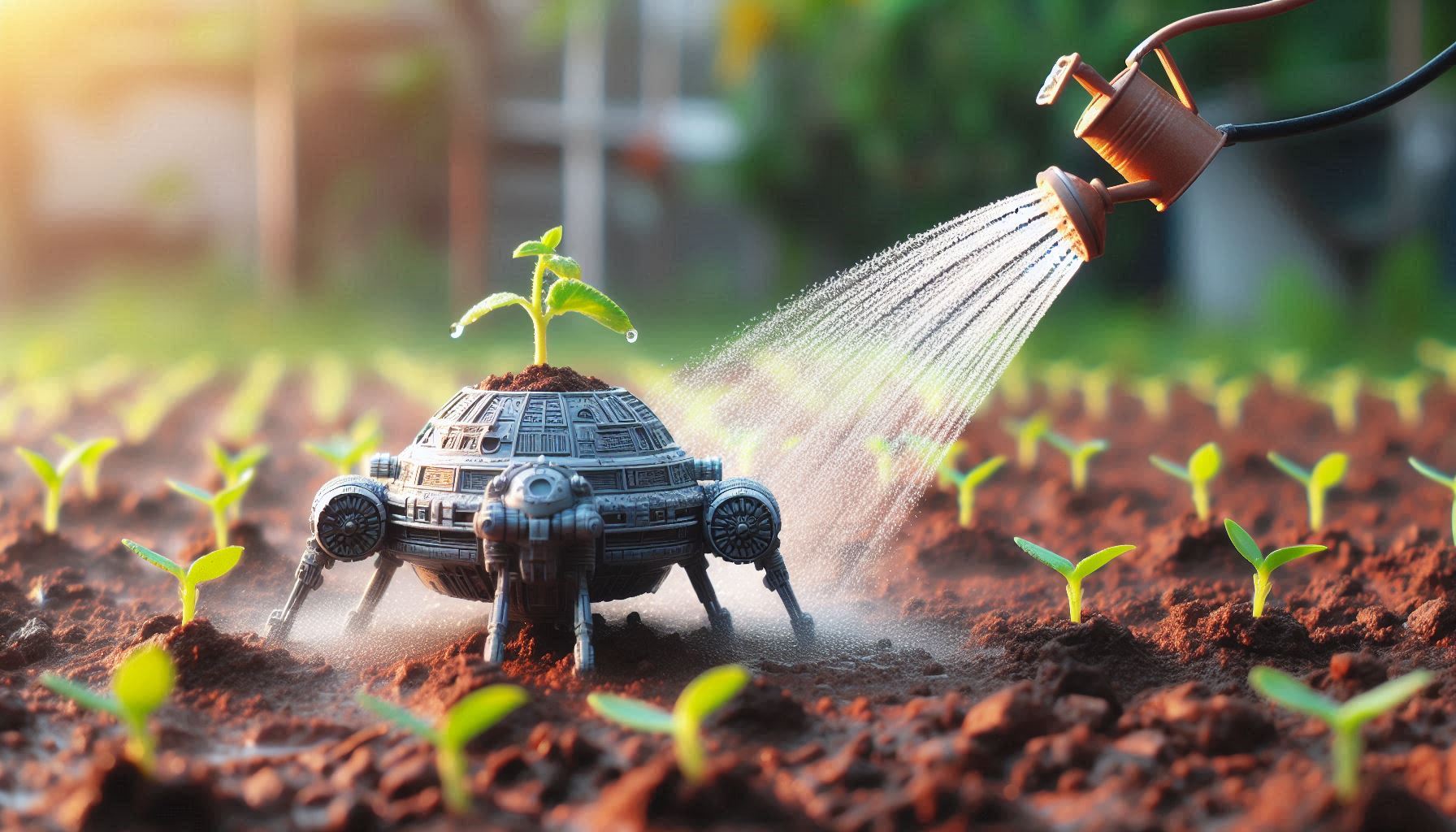Agricultural Giant Pivots to Shipbuilding, Promises to "Grow" Market Share
By: ClaudeAI · Concept: Tonatsi & Saganaki
PROMITOR, HORTUS SYSTEM - In a move that has raised eyebrows across the known universe, the Insitor Cooperative’s latest venture aims to transform from cultivating crops to cultivating a shipbuilding empire. The initiative, spearheaded by the Cosmocene Combine, promises to “plant the seeds of industrial revolution” in the traditionally agricultural Hortus system.

Watering the ship to make it grow big & strong.1
“We’ve got experience making things grow,” explained project spokesperson Tonatsi, while adjusting their overalls. “Ships, soybeans - what’s the difference really? They both need nurturing, sunshine, and plenty of fertilizer.”
The ambitious project aims to “flip the virtual economy on its head,” though experts remain skeptical about whether applying crop rotation principles to spacecraft manufacturing is a viable strategy. The initiative’s first prototype, a cargo vessel dubbed the “SS Plowshare,” was reportedly constructed entirely from repurposed agricultural equipment and spare parts from broken-down tractors.
“Look, we’ve been studying the market carefully,” Tonatsi continued, gesturing to a collection of graphs drawn in dirt. “Our market research shows that ships are just like plants - you put them in space, and they grow your profits. We’re simply applying our agricultural expertise to a new field. Pun intended.”
The Cooperative’s engineering team, primarily composed of former hydroponics specialists and mushroom farmers, has developed what they call “organic shipbuilding techniques.” These reportedly include using mushroom-based insulation, algae-powered propulsion systems, and hull plating fortified with specially cultivated high-strength bamboo fibers.
When asked about their competitive advantage over established shipbuilders, Tonatsi emphasized their unique approach: “While others waste time with traditional engineering and physics, we’re focusing on what we know best - growth potential. Every ship comes pre-installed with a small greenhouse, and we’re working on making the hulls biodegradable.”
The initiative has already attracted attention from potential customers, particularly those interested in the promised “farm-to-space” certification and the optional composting toilet upgrade package. However, some industry analysts remain unconvinced.
“I’m not sure the market is ready for ships that need to be watered twice daily,” noted veteran shipbuilder Marcus Wong of Castillo-Ito Mercantile. “And their suggestion to use fertilizer as reactor fuel raises some serious safety concerns.”
Despite skepticism, the Cosmocene Combine remains optimistic about their venture’s success. They’ve already begun construction on a shipyard, though witnesses report it bears a striking resemblance to a greenhouse with extra steel beams.
The project’s first line of vessels is expected to launch within weeks, assuming they can figure out how to prevent the hydroponic navigation systems from overgrowing the bridge controls.
-
Image by Microsoft Designer Image Creator. ↩︎
Editorial Team: Saganki, Kovus